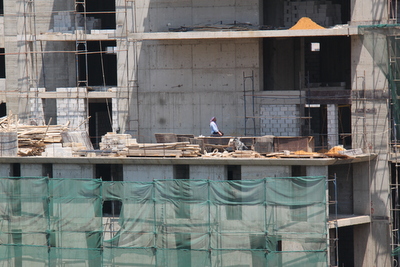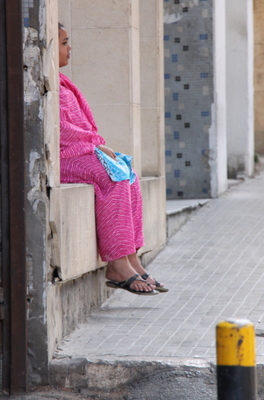I’m going to go out on a limb here and say that for someone growing up in Lebanon who has never travelled abroad, it’s hard NOT to be “racist” to a degree. Don’t shoot me just yet. By “racist” here I mean to make prejudiced assumptions about how much money a customer has to spend or what job a person holds based on their skin colour.
Socio-racial apartheid is a fact in Lebanon. Almost all Sri Lankans, Filipinos and Africans one might see in Lebanon are domestic workers, doormen or garbage men. That means they come to Lebanon on a specific working visa and have few rights and low wages. It’s easy to form stereotypes. In fact I’ve spoken to tourists who have been mistaken for domestic help because of their ethnic origin.
I am tempted to say this is racism based on classism: Maybe a store owner will bend over backwards if he thinks you are a rich tourist, whatever your ethnic origin, but if he assumes you cannot possibly be a rich tourist (informed by his pitifully limited experience) then he won’t pay you much attention.
After all, pretty much any black person the shopkeeper has ever seen is earning a pittance doing menial chores. Even in the West we accept non-racial classism as a fact of life, albeit an unpleasant one.
But it’s one thing to assume another can’t afford your services and another thing altogether to refuse them on the basis of race.
A Lebanese friend took her Sri Lankan friend to the hairdresser the other day (pause for the Lebanese readers to get their heads round that one). Not a big posh chain, just one of those small corner places. In fact she took her to five salons, and one after another refused to cut her hair because she’s Sri Lankan.
One said he’d lose all his customers if they saw him. Clearly he felt that not one of those customers would be concerned that he turn a paying customer away on socio-racial grounds.
But many Lebanese have tasted life abroad in countries where such behaviour is not only socially unacceptable, but criminal. Ignorance still breeds there too though, and many Lebanese have faced a share of prejudice and conceit in the States or in England, where people assume that Lebanon is a dusty, dirty desert where women are whipped for flashing an ankle.
But perhaps the worst of it is that many of these return with their own prejudices intact. They may pride themselves on their studies abroad, on their foreign passports, and (oh the irony) on having a higher level of “civilisation” than their compatriots. But poor un-travelled Lebanese aren’t more racist. If anything they are more human.
Of course some good hearts with a strong sense of justice are sickened to return to their homeland and find it stuck in the sixties with regard to interracial relations.
As for the others, after struggling in the US with misconceptions of their beautiful country being a terrorist-infested hole with camels as currency, they are relieved to return to a life where they have a guaranteed three layers of social strata beneath them. And they’re not going to let go of that in a hurry.
Because part of the reason foreign workers are so common in families and businesses is that people need to feel important. More important than the neighbours, more important than the workers, more important in the eyes of Western friends.
In the UK or the US it is no longer possible to guess a person’s job from their skin colour. But it’s not something to congratulate ourselves on. It took decades of anti-discrimination law. Attitudes changed very slowly. Were the law not enforced the west would slip backwards. Here in Lebanon, legislation is not even on the side of minorities. With foreign workers viewed more or less as property in the eyes of the law, attitudes in society have a long way to go. Don’t even get me started on law enforcement.
Seeing some battle with their own complexes reminds me of what I recently read about Antonius Felix, once governor of a Roman province here in the Near East. A former slave, he used his connections to climb the ladder of influence. As procurator, he earned such a reputation for cruelty and self-indulgence, it was said he “wielded the power of king with all the instincts of a slave”. In the Western world they so admire, the Lebanese know they may face disdain from some; but back home they are king.





